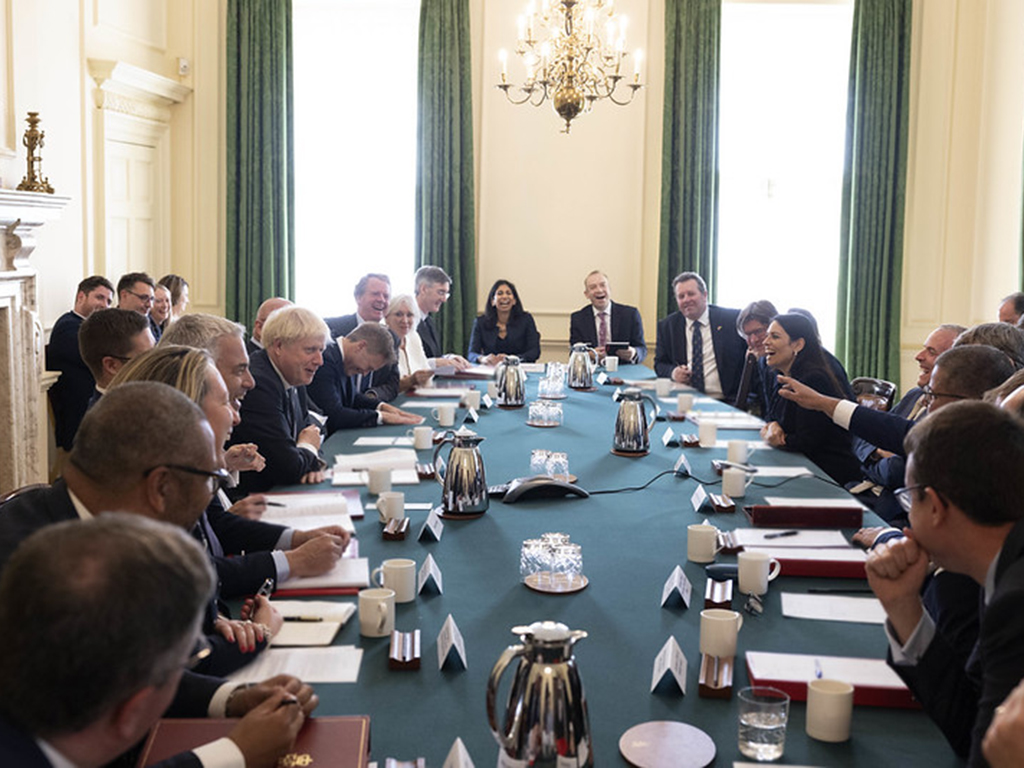
Are you too running for the Tory leadership? Power is lying in the streets, and every Tory MP you have never heard of is wondering whether to pick it up. Never served in the cabinet? Fear not, neither have many of the party’s currently declared candidates.
There is the first rank of possible contenders, the ones of whom you may have heard – Rishi Sunak, Sajid Javid, Ben Wallace, Liz Truss, Nadhim Zahawi; all of whom were in the cabinet last week and whom I list in that order deliberately – and there is the second rank, from outside cabinet – Penny Mordaunt, Tom Tugendhat, Jeremy Hunt, and Steve Baker.
Then there are the people who are unexpectedly suggesting they too might run, from Grant Shapps to Kemi Badenoch. There is also Suella Braverman, a political unknown until she was unexpectedly made Attorney General by Johnson in 2020. Braverman has declared she is running in what can only be described as a roundabout attempt to avoid being sacked from the next leader’s cabinet. Even Robert Buckland, another MP best suited to the backbenches, yesterday refused to rule out a run: “Who knows,” he told the BBC. “I’m always ready to serve the country in whatever capacity.”
Michael Gove, who I think would possibly be the party’s most effective prime minister, has reportedly ruled out a run, after coming third in the 2016 and 2019 leadership contests. Gove is the third man in the Johnson-Cummings story, and the only one of the Brexit trio with the temperament actually to carry out the business of government. He is the party’s most experienced minister, he knows how to motivate civil servants, the party’s most talented MPs would want to work for him, and he would be energised by the extensive challenges ahead – Johnson tasked him with resolving many of them over the past three years.
Gove is unpopular with the public but competence is a winning quality, and Gove is widely recognised as one of the party’s most effective speakers in the House. Sunak –whom Gove is now likely to back, and who has a strong chance of winning the contest – is comparatively robotic in comparison; like Starmer, Sunak speaks without mischief or a sense of mission. If Sunak wins, Britain may soon tire of the two men on offer to them. Sunak nevertheless leads among candidates when the public is polled, although Ben Wallace – who is politically untested outside of Ukraine, and who has not built any great base of MPs in the party – is currently the party membership’s favoured candidate.
All the while, Boris Johnson continues to occupy Downing Street, in defiance of the many Tory MPs who want him to leave office now. The party was on the verge of voting Johnson out within hours or days before Johnson announced his quasi-resignation at 12.30pm yesterday. He staved off a vote by offering to go, but then failed to resign as Prime Minister. By not resigning he has dared his party’s MPs to remove him in the Commons if they object, but they will not do so, as they fear the election that might follow.
As a result, Johnson is now able to stay on as Prime Minister, perhaps all summer long. He has committed to governing in a limited way, but few MPs are comfortable with Johnson’s assurances at this point. He will go, but he is – even in the jaws of defeat – managing to depart gradually when much of his party, and the country, want him out immediately.
[See also: Boris Johnson has not resigned as Prime Minister]






